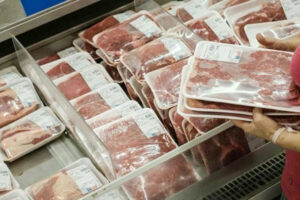By Adrian H. Halili, Reporter
THE streamlined approval process for agricultural imports may not result in lower food prices while endangering the livelihoods of domestic producers, analysts said.
“There is no assurance that relaxing non-tariff measures will result in lower consumer prices. And it might only encourage smuggling, undervaluation and misdeclaration of imports,” Federation of Free Farmers Na-tional Manager Raul Q. Montemayor said in a Viber message.
Administrative Order No. 20 (AO 20) instructed the Departments of Agriculture (DA), Finance (DoF), and Trade and Industry (DTI) to simplify the administrative procedures for agricultural imports, as well as remove non-tariff barriers.
President Ferdinand R. Marcos, Jr. said the order was issued to ensure food security and bolster supply.
The DA was also tasked with reviewing the guidelines for importing sugar and fisheries products.
“The government (has) reduced the tariffs on prime commodities like rice, pork, and corn. Tariffs on other products are already very low. But these (measures) have not reduced retail prices,” Mr. Montemayor added.
Last year, the President approved Executive Order (EO) No. 50, extending the reduced tariff regime for rice imports to 35% for another year, applicable to shipments within or exceeding the minimum access volume.
Corn tariffs were set at 5% and 15% for in-quota and out-of-quota shipments, respectively. Pork tariffs were retained at 15% for shipments within the quota and 25% for those exceeding the quota.
Leonardo A. Lanzona, an economics professor with the Ateneo de Manila, said the order will not solve the country’s long-term supply problem.
“Allowing more imports can be a way of reducing inflation, mostly favoring consumers. General prices might have been reduced but remain higher than expected,” Mr. Lanzona said in a Messenger chat.
Inflation picked up to 3.7% in March from 3.4% in February and 7.6% a year earlier. Food inflation accelerated to 5.7%, the strongest reading since the 5.8% posted in November.
Danilo V. Fausto, president of the Philippine Chamber of Agriculture and Food, Inc. said in a Viber message that AO 20 may have a short-term impact on inflation but may “damage agricultural production over the long term.
“AO 20 will encourage and incentivize imports… If producers cannot compete with imports… farmers will leave farming and do something else to earn a living,” Mr. Fausto added.
